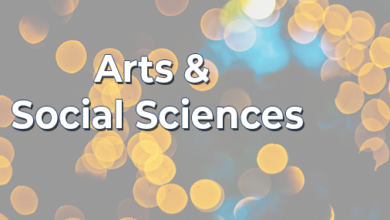What Are Social and Behavioral Science Courses?
Social and behavioral science courses are an essential component of higher education, offering insights into the complex interplay between human behavior and societal structures. These courses explore the patterns, behaviors, and cultural norms that define societies around the world. Through a diverse curriculum, students are equipped with the tools to critically analyze human behavior, social interactions, and the various institutions that shape our world.
Social and Behavioral Sciences
Social and behavioral sciences encompass a range of disciplines, including psychology, sociology, anthropology, and economics, among others. These fields share a common goal: to understand and explain human behavior and the dynamics of societal systems. The courses typically blend theoretical knowledge with empirical research, providing a robust framework for understanding the myriad factors that influence individual and group actions.
The Importance of Studying Social and Behavioral Sciences
Studying social and behavioral sciences allows individuals to gain a deeper understanding of themselves and the world around them. These courses foster critical thinking and analytical skills, empowering students to tackle complex societal issues. They also enhance interpersonal skills and cultural awareness, which are invaluable in a globally interconnected world.
Key Disciplines within Social and Behavioral Sciences
Psychology
Psychology, the study of the human mind and behavior, is one of the most prominent disciplines within the social and behavioral sciences. Courses in this field explore various aspects of mental processes, emotions, and behaviors through diverse approaches, including cognitive, behavioral, developmental, and clinical psychology.
Sociology
Sociology focuses on the study of social groups, patterns, and structures. It examines how societies are organized, how social influences affect individual behavior, and the challenges of social interactions. Courses might cover topics from family dynamics and social stratification to racial and ethnic relations.
Anthropology
Anthropology is the study of humans, past and present. This discipline provides insights into how human societies have evolved over time and how cultural practices and beliefs shape modern social life. Anthropological studies often involve fieldwork, giving students firsthand experience in cultural analysis.
Economics
Economics explores how societies use resources like time, money, and materials. Courses in economics discuss the production, distribution, and consumption of goods and services, and they often emphasize the behavior of individuals and organizations within market systems.
Methodologies in Social and Behavioral Science Research
Research methodologies in these fields vary widely but generally include qualitative and quantitative approaches. Qualitative methods, such as interviews and participant observation, allow researchers to gather in-depth insights into human behavior. Quantitative methods, like surveys and statistical analysis, help in understanding patterns and predicting future behaviors based on numerical data.
Career Opportunities
Graduates of social and behavioral science programs have diverse career opportunities. They can pursue roles in education, healthcare, public policy, social work, and market research, among others. These fields require a strong understanding of human behavior and societal trends, skills that are directly developed through social and behavioral science courses.
Integrating Technology in Social and Behavioral Sciences
The integration of technology into social and behavioral sciences has opened new avenues for research and application. Technologies such as data analytics, artificial intelligence, and virtual reality are now being used to study complex social behaviors and to simulate social environments for research and training purposes.
Ethical Considerations in Social and Behavioral Sciences
Ethical considerations are paramount in the study of social and behavioral sciences. Researchers must navigate issues related to privacy, consent, and bias while ensuring that their work does not harm individuals or communities. Ethical conduct is emphasized throughout coursework and research to prepare students for responsible professional practice.
Global Impact of Social and Behavioral Sciences
Social and behavioral sciences have a profound impact on global issues, including poverty, education, health disparities, and environmental sustainability. By understanding the social and behavioral factors that contribute to these issues, researchers and practitioners can devise effective interventions.
Conclusion
Social and behavioral science courses are vital for those looking to understand and influence the social world. Through a rich blend of theory, research, and practical applications, these courses prepare students to address real-world challenges and to contribute to the betterment of society. As the world becomes increasingly complex, the insights provided by social and behavioral sciences will be more crucial than ever in shaping policies, practices, and innovations that reflect an in-depth understanding of human behavior and societal needs. These courses do not just educate; they empower individuals to make a tangible difference in the world.






